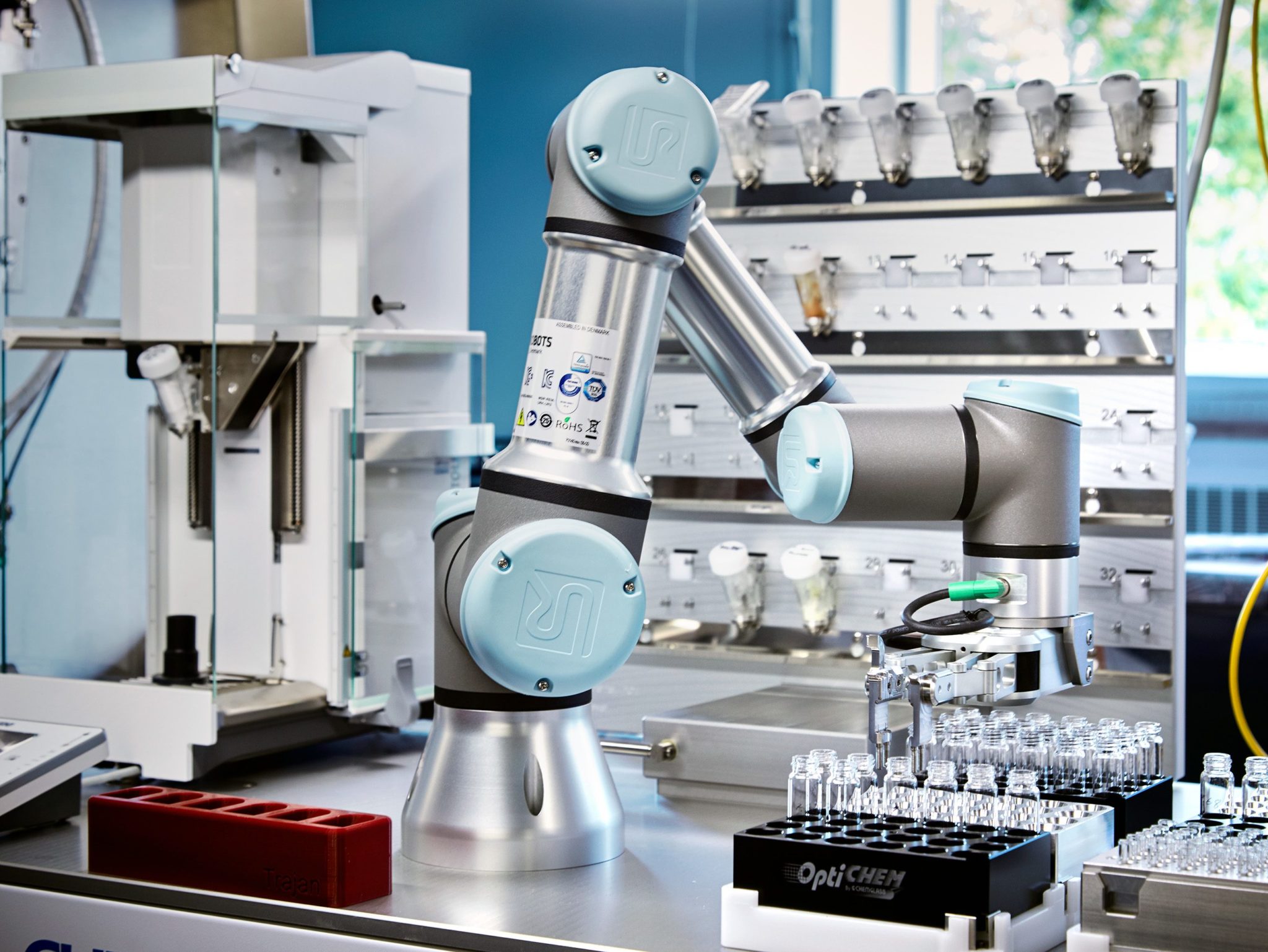If we hope to meaningfully tackle climate change and reverse the systemic resource pressures placed on the planet, we need to develop new materials faster and more efficiently. From batteries and adhesives, to pesticides and waste management, AI when applied to materials discovery expands the universe of solutions to the 21st century’s greatest challenges.
This week, the MIT Technology Review published an in-depth profile of Alán Aspuru-Guzik, a global superstar in the field of chemistry who is at the forefront of AI-driven materials discovery. Alán is also a Radical Ventures Scientific Advisor, Professor of Chemistry and Computer Science at the University of Toronto, and a Canada CIFAR AI Chair at the Vector Institute.
To understand the opportunity that lies within this new branch of science, it is worth noting recent advancements in AI for drug discovery. Applying AI to drug discovery reduces the cost and time to run experiments, increasing the pace of data generation and discovery loops. The vast potential of AI to reshape the pharmaceutical industry’s future is a primary driver for Radical Ventures’ investment in Genesis Therapeutics.
We believe AI-driven drug discovery offers a blueprint for future innovation in advanced materials. By applying a similar framework, there are tremendous opportunities in every industrial vertical to build next-generation material companies.
If you are building an AI-driven advanced material company and would like to talk about it, please email daniel@radical.vc.
AI News This Week
-
This program can give AI a sense of ethics—sometimes (Wired – Subscription required)
Delphi is an AI prototype released by the University of Washington and the Allen Institute for Artificial Intelligence (Ai2) in Seattle to help AI systems be more ethically-informed and equity-aware. According to Nick Frosst, CTO and Co-Founder of Radical Ventures portfolio company Cohere, “Delphi reflects a broader question that the tech industry is wrestling with—how to build technology responsibly. Too often […] when it comes to content moderation, misinformation, and algorithmic bias, companies try to wash their hands of the problem by arguing that all technology can be used for good and bad.”
Cohere has developed a large language model that is accessible via an API. The team is proactive in its mission to build safe products with the belief that Cohere has a duty of care to users, the environment, and society at large. In practical terms, that has two major components. First, it means making a serious investment in technical measures to mitigate potential harms. Second, Cohere believes that the development process must be accountable to the public at large. Cohere keeps its methods transparent and also established a Responsibility Council empowered to shape its product and business decisions.
-
Opinion: To improve patient care, Canada should fix its health records system (The Globe and Mail – Subscription required)
Radical Ventures portfolio company PocketHealth is on a mission to create a patient empowered world. Co-Founders Rishi Nayyar and Harsh Nayyar authored an opinion piece on the importance of ownership and access to your medical records, published in the Globe and Mail this week. The Co-Founders note, “COVID-19 vaccine mandates have raised awareness of the importance of having one small part of our health records instantly accessible, but there exists a much greater opportunity for Canadians to be more participative in our own health care.” PocketHealth is a patient-centric, digitally accessible, medical image and health record sharing platform for both patients and hospitals.
-
Why scientists have spent years mapping this creature’s brain (The New York Times)
Advances in imaging and machine learning have made it possible to map the 100,000 neurons in a fly’s brain, called a connectome. In recent years, connectomes have been started for insects, fish, birds, mice, and even humans. The enormous paper that resulted from researchers mapping the fly’s brain was originally declined by the preprint server bioRxiv due to its size. The paper contains a comprehensive blueprint necessary for studying the underlying dynamics of sleep, flexible navigation, and behaviour more generally. Scaling these insights will still take time. Even a mouse’s brain is roughly 700x the size of a fly’s at 70 million neurons, while the human brain has a whopping 86 billion neurons. Advances in machine learning will continue to make this work feasible within a researcher’s lifespan.
-
Despite COVID-19, Ontario AI ecosystem continues growth trajectory, report finds (BetaKit)
As highlighted last week, the Vector Institute for Artificial Intelligence’s Ontario AI Snapshot confirmed that “Ontario’s AI ecosystem responded nimbly and effectively to the challenges created by the COVID-19 pandemic, and continues to grow in size and strength.” Part of this resilience is the city’s talent network. Toronto is the second-largest tech talent pool in North America.
-
Spacing out: Help train an AI algorithm on Mars (AI4Mars & NASA)
Members of the public can help improve NASA’s Mars rovers by outlining features in images taken by Perseverance. Objects such as rocks need to be hand labelled to help improve the neural networks’ ability to recognize Martian terrain. Rather than outsourcing to microtask workers, Zooniverse is running the project – known for gamifying anomaly detection so that people voluntarily sift through images in their spare time. Crowdsourcing high-quality labelled data, sometimes called citizen science, has been around for decades. One of the oldest examples is The National Audubon Society’s Christmas Bird Count running for over 100 years.
Radical Reads is edited by Ebin Tomy.

